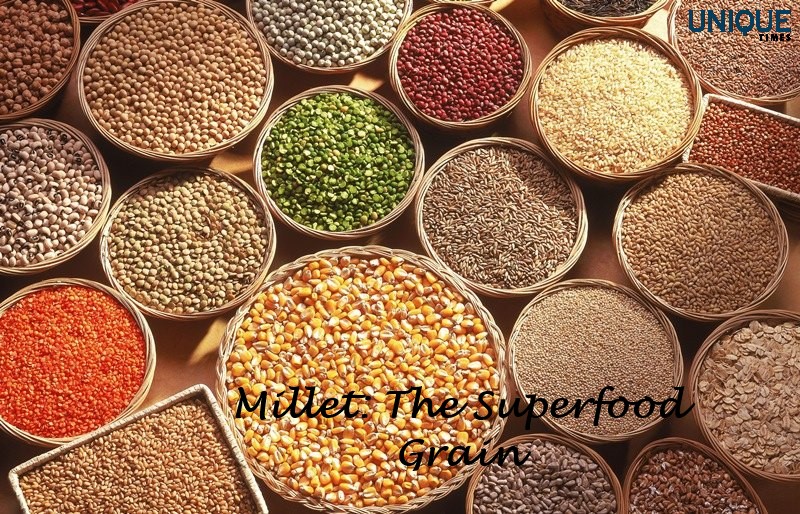Millet: The Nutrient-Packed Superfood for a Healthy Lifestyle

In recent years, there has been a growing interest in superfoods – nutrient-rich foods that offer a plethora of health benefits. One such superfood that often flies under the radar is millet. Originating from ancient civilizations, millet has been a staple grain in various cultures for thousands of years. This blog aims to shed light on why millet is a true superfood and how incorporating it into your diet can significantly boost your overall health and well-being.
- Rich in Essential Nutrients
Millet is a nutritional powerhouse, packed with essential vitamins and minerals. It is an excellent source of B-vitamins such as niacin, thiamine, and riboflavin, which are crucial for converting food into energy and maintaining a healthy nervous system. Additionally, millet is rich in iron, magnesium, phosphorus, and zinc – all of which play vital roles in various bodily functions, from building strong bones to supporting the immune system.
- Gluten-Free and Easily Digestible
For those with gluten sensitivities or celiac disease, millet is a fantastic alternative to wheat and other gluten-containing grains. Being naturally gluten-free, millet can be easily incorporated into a gluten-free diet, making it an excellent choice for those looking to diversify their grain options. Moreover, millet is highly digestible, making it gentle on the stomach and suitable for people with sensitive digestive systems.
- High in Fiber
Fiber is an essential component of a healthy diet, aiding digestion and promoting a feeling of fullness, which can help with weight management. Millet boasts a considerable fiber content, which not only supports digestive health but also helps regulate blood sugar levels and reduces the risk of developing heart disease.
- Supports Heart Health
Millet is heart-friendly due to its high levels of magnesium, a mineral that contributes to a healthy cardiovascular system. Magnesium helps regulate blood pressure and promotes proper heart function, reducing the risk of heart attacks and strokes. Moreover, millet contains antioxidants that combat oxidative stress and inflammation – both factors that can contribute to heart disease.
- Regulates Blood Sugar Levels
The complex carbohydrates found in millet are digested slowly, leading to a gradual and steady release of glucose into the bloodstream. This slow digestion process helps prevent sudden spikes and drops in blood sugar levels, making millet an excellent choice for individuals with diabetes or those at risk of developing it.
- Supports Weight Management
As mentioned earlier, millet’s high fiber content helps create a feeling of fullness, which can aid in weight management efforts. Additionally, the grain’s slow digestion process and low glycemic index help control hunger and reduce cravings for unhealthy snacks, making it an ally in maintaining a healthy weight.
- Versatility in the Kitchen
Millet’s versatility is yet another reason why it deserves the title of a superfood. It can be cooked in various ways – from fluffy pilafs to creamy porridge, or even ground into flour for baking. Its mild, nutty flavor complements both sweet and savory dishes, making it an excellent addition to any culinary repertoire.
Conclusion
With its impressive nutrient profile, gluten-free nature, and numerous health benefits, millet undoubtedly deserves its place among the superfoods. From supporting heart health to aiding weight management, this ancient grain can play a significant role in maintaining a healthy lifestyle. So, why not incorporate millet into your diet and reap the rewards of this fantastic superfood today!
Picture Courtesy: Google/images are subject to copyright








